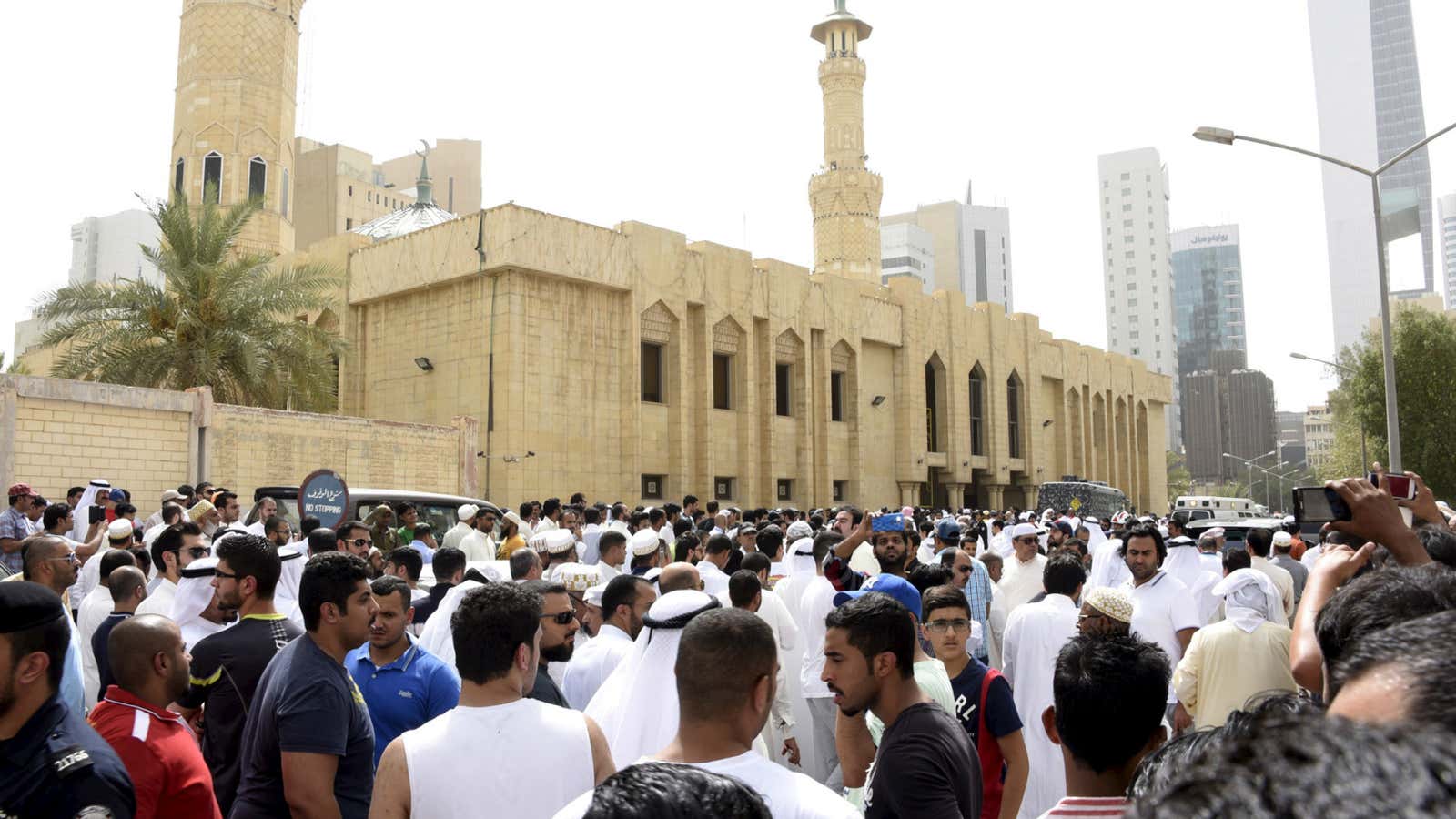As authorities in Tunisia, France, and Kuwait—as well as the Kurds in Kobani, on the Syrian-Turkish border—take stock after a series of attacks over the past 48 hours by the terrorist group known as ISIL, there is as yet little evidence of a coordinated master-plan. But it is clear that ISIL’s fighters, and their fellow-travelers around the world, have responded with fiendish enthusiasm to the group’s call for a spike in violence during Ramadan.
As a result, a month Muslims usually mark with fasting, introspection and communal bonding has been stained in blood—and, for the most part, the blood of Muslims. In the West, tabloids are, inevitably, dubbing it “Bloody Friday.” And the mayhem may well last right up to the end of Ramadan, which is scheduled for July 17. Reports today from the UK, where many are mourning the Britons killed in Tunisia, say police foiled a plot to bomb a military parade in London.
“O mujahedeen everywhere, rush and go to make Ramadan a month of disasters for the infidels,” the ISIL spokesman Abu Mohammed al-Adnani said in an audio message at the start of Ramadan, on June 17, according to the New York Times. (The group, also known as ISIS or the Islamic State, observed the start of the holy month by releasing one of its now-routine snuff videos.)
It may seem intuitive that at a time when the faithful are feeling especially devout, the fanatics among them will feel especially fanatical. But ISIL’s call to ratchet up violence during Ramadan is actually highly unusual; even groups like Al Qaeda and the Taliban—not known for their scruples—don’t typically see Ramadan as a time to launch greater attacks.
For one thing, in many Muslim countries security is beefed up throughout the month, and especially in the evenings, when the streets fill up after the fast-breaking “iftar” feasts. For another, many of the networks of enablers that help terrorist groups—smugglers who bring them supplies, keepers of safe houses, et al.—either shut down, or are lightly manned during Ramadan.
Even among those who support the objectives of groups like ISIL, the idea of violence during Ramadan—especially against fellow Muslims who are themselves observing the fast—is hard to endorse. “The attack on a mosque [in Kuwait] on Friday is especially egregious during Ramadan… as is the attack on non-combatants and civilians,” says Saeed Khan, who teaches Islamic and Middle Eastern history, Islamic civilization, and the history of Islamic political thought at Detroit’s Wayne State University. (Khan points out, however, that ISIL doesn’t regard the Shia as Muslims, which may explain the targeting of a Shia mosque in Kuwait.)
Islam doesn’t prohibit fighting during Ramadan; indeed the first major conflict the Muslims ever fought, known as the Battle of Badr, took place during the fasting month, in 624AD. Led by the Prophet Mohammed himself, the Muslims were victorious. There are other examples of Muslim armies fighting during the fasting month.
Although there have been some attempts to negotiate ceasefires between warring Muslims during Ramadan—most recently, by the UN in Yemen—it is generally accepted that Islam doesn’t require an ongoing conflict doesn’t need to be halted.
There are four other months during the Islamic lunar calendar, known collectively as shahar ul-haram (also rendered as shahr al-haraam) when the faithful are prohibited from war. But here, too, it has been long-standing practice for ongoing wars to continue without a let-up.
But calling for a violent surge during Ramadan is a different matter. It reflects ISIL’s “abject disregard for well-established modalities of authority, and legal precedent,” Khan says.
This is unlikely to matter to ISIL’s followers, however. As we’ve heard repeatedly, from former hostages and deserters, many of the group’s fighters know little or nothing of the Quran.
